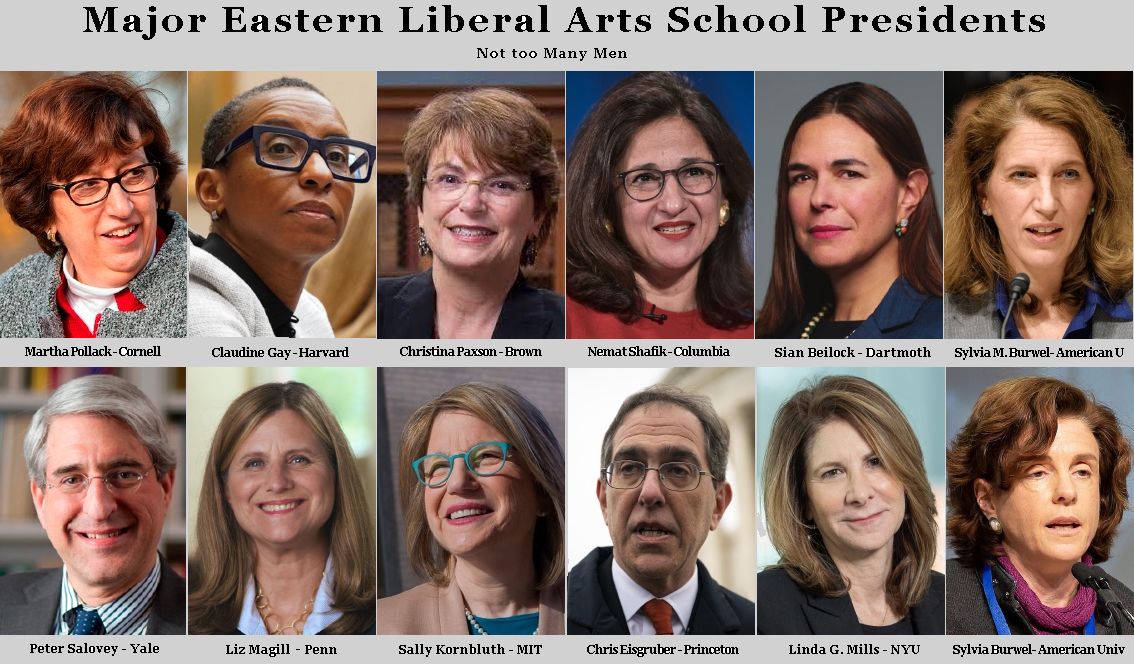Higher Ed Has Become a Threat to America
Our corrupt, radical universities feed every scourge sfrom censorship and crime to antisemitism. By John Ellis America faces a formidable range of calamities: crime out of control, borders in chaos by design, children poorly educated while sexualized and politicized against parental opposition, unconstitutional censorship, a press that does government PR rather than oversight, our institutions and corporations debased in the name of “diversity, equity and inclusion”—and more. To these has been added an outbreak of virulent antisemitism. Every one of these degradations can be traced wholly or in large part to a single source: the corruption of higher education by radical political activists. Children’s test scores have plummeted because college education departments train teachers to prioritize “social justice” over education. Censorship started with one-party campuses shutting down conservative voices. The coddling of criminals originated with academia’s devotion to Michel Foucault’s idea that criminals are victims, not victimizers. The drive to separate children from their parents begins in longstanding campus contempt for the suburban home and nuclear family. Radicalized college journalism departments promote far-left advocacy. Open borders reflect pro-globalism and anti-nation state sentiment among radical professors. DEI started as a campus ruse to justify racial quotas. Campus antisemitism grew out of ideologies like “anticolonialism,” “anticapitalism” and “intersectionality.” Never have college campuses exerted so great or so destructive an influence. Once an indispensable support of our advanced society, academia has become a cancer metastasizing through its vital organs. The radical left is the cause, most obviously through the one-party campuses having graduated an entire generation of young Americans indoctrinated with their ideas. And there are other ways. Academia has a monopoly on training for the most influential professions. The destructive influence of campus schools of education and journalism already noted is matched in the law, medicine, social work, etc. Academia’s suppression of the Constitution causes still more damage. Hostility to the Constitution leads to banana-republic shenanigans: suppression of antigovernment speech, the press’s acting as mouthpiece for government, law enforcement used to harass opponents of the government.
![]()
Harvard Is Big Business at Its Worst
With large, tax-insulated endowments, Ivy League schools act like companies without market pressure Allysia Finley
Most Americans probably heard of the Harvard Corp. for the first time last week, when it issued a supercilious statement affirming its support for Harvard President Claudine Gay. The corporation, Harvard’s governing body, wrote that Ms. Gay “is the right leader to help our community heal and to address the very serious societal issues we are facing.”
The statement was effectively a middle finger to alumni such as hedge-fund titan Bill Ackman, who had demanded Ms. Gay be canned after she equivocated before Congress over whether calling for the genocide of Jews violated Harvard’s rules against bullying. The corporation wished to convey it wouldn’t bow to outside pressure.
Corporation is an apt appellation for Harvard and other Ivy League schools, considering they operate more like for-profit businesses than educational institutions. Unlike businesses, however, they lack shareholders to hold them accountable. This makes them models of the left’s “stakeholder capitalism” paradigm.
The Harvard Corp. consists of 13 members, including the president. It is self-selecting—members elect new members—and boasts that it is “the oldest corporation in the Western Hemisphere.” Governing bodies of other Ivy League schools, including Yale and Columbia, are also referred to as corporations, which are structured to limit alumni influence in their affairs.
The Internal Revenue Service recognizes Harvard and most private colleges as nonprofits, meaning they don’t have to pay taxes. This exemption saves Ivy League schools hundreds of millions of dollars each year and has enabled them to grow their fiefs and endowments.
Columbia is New York City’s largest private landowner, with more than 320 properties, valued at nearly $4 billion. The school saves more than $182 million annually by not paying property tax. Harvard avoids some $50 million annually. Property tax exemptions allow colleges to offer low-cost housing to faculty and reduce the cost of building facilities to house new bureaucracies.
At the same time, Ivy League endowments—Harvard ($50.7 billion), Yale ($40.7 billion), Princeton ($34.1 billion) and the University of Pennsylvania ($21 billion)—exceed the market values of most publicly traded corporations. These endowments wouldn’t be anywhere near as large if the schools had to pay a 23.8% tax on capital gains, as their wealthy alumni must on their investment earnings.

